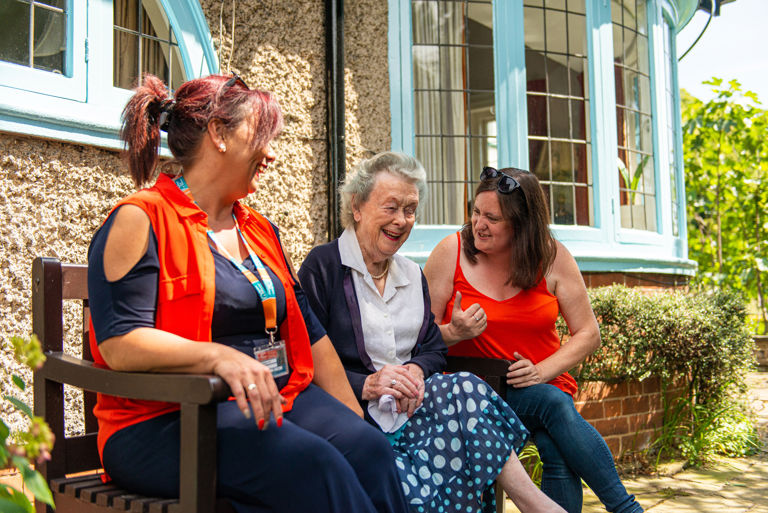
How to Access a Care Assessment from the Council
If you're looking for direct payment or personal budget funding for homecare, the first step is to access a care assessment from your local council.
Published: 27/08/2024
At Right at Home UK, we believe that accessing the right care is essential for maintaining independence and well-being at home. If you or a loved one are finding it difficult to manage daily tasks, the first step towards getting the support you need is to request a care assessment from your local council. This assessment is crucial for determining the type of help you might require, whether it's assistance with daily activities, modifications to your home, or access to specialised services.
Let’s look at them in more detail.
What is a Care Assessment?
A care assessment, also known as a needs assessment, is a free evaluation provided by your local council to determine the level of support you need. The assessment is designed to identify your difficulties with day-to-day activities and to recommend services that can help you maintain your independence and quality of life.
The assessment might lead to recommendations for various services, such as:
- Mobility aids such as walking frames or personal alarms
- Home modifications, like fitting a walk-in shower or grab rails
- Assistance at home provided by a professional carer
- Availability of day centres, lunch clubs, or respite care
- Relocating to a care home if needed
How to Request a Care Assessment
Requesting a care assessment is simple and straightforward. Here’s how you can do it:
- Contact Your Local Council’s Social Services: You can call them directly or apply online via the GOV.UK website. When contacting them, clearly state that you would like to arrange a care assessment.
- Provide Your Details: You’ll need to provide some basic information about your situation, including the difficulties you face with daily tasks.
- Wait for Confirmation: After your request, the council will arrange for an assessor, usually a social worker or occupational therapist, to conduct the assessment.
What Happens During the Assessment?
During the assessment, a professional from the council will evaluate how you’re coping with everyday tasks. The assessment may take place face-to-face, over the phone or online via a video call.
The assessor will ask you to describe how you manage tasks like washing, dressing, cooking, and moving around your home. They may also ask about more specific activities, such as making a cup of tea or getting out of a chair.
If it seems like your home environment might need changes (e.g., installing grab rails), you could be referred for a separate home assessment to evaluate necessary modifications.
How to Prepare for Your Assessment
Preparation is key to ensuring that your needs are fully understood during the assessment. Here are some tips:
- Detail Every Challenge: Be as detailed as possible about the tasks you find difficult, even if they seem minor, like turning on taps or opening jars. Omitting details could result in less support being offered.
- Use Checklists: Resources like Which? Later Life Care offer checklists of common assessment questions. These can help you think through all the areas where you might need assistance.
- Seek Guidance: Independent Age provides a step-by-step guide to getting help from your council, which can be invaluable in preparing for your assessment.
Having Support During the Assessment
It can be helpful to have someone with you during the assessment. Consider these options:
- Bring a Friend or Relative: They can support you by taking notes and helping you communicate your needs effectively.
- Use an Advocate: If you don't have someone who can accompany you, an advocate can assist. Advocates are people who speak on your behalf and can help you through the process. Many advocacy services are free.
What Happens After the Assessment?
After your assessment, the council will determine whether you are eligible for support. You’ll receive a decision outlining the types of care and support that would benefit you. This could include services like:
- Regular visits from a paid carer
- Meals delivered to your home (meals on wheels)
- Access to community services like day centres
Financial Assessment (Means Test)
If your assessment shows that you need help, the next step is a financial assessment, also known as a means test. This assessment will determine whether you need to contribute to the cost of your care or if the council will cover it. The council will arrange this financial assessment for you.
Find Out More: If you’d like to know more about how to fund and plan for homecare, check out our guide on direct payments, personal budgets and other types of financial help.
What if You Don’t Qualify for Care?
If the assessment finds that you don’t qualify for council-funded care, don’t worry. The council is still obligated to provide you with advice and information on other forms of help available in your community. Make sure to ask for this information if it isn’t offered.
What Next? Choose a Homecare Provider You Can Trust
If you're looking for care that makes a genuine difference in your life and you've gone through the process of receiving a care assessment from your local council, we would love to hear from you.
With a dedication to providing person-centred home care that puts your quality of life at the forefront of everything we do, our passionate care professionals are playing a vital role in communities up and down the country.
Get in touch today to learn more about our homecare services and how we can help you access the support you deserve.
;)
